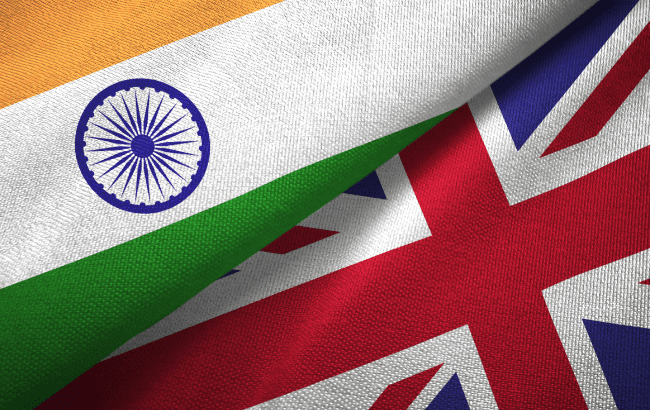UK-India trade deal ‘changes everything’ for spirits producers
By Georgie CollinsA ‘landmark’ trade agreement between the UK and India that will see import tariffs on gin and Scotch whisky halved has been welcomed by members of the trade.

The deal between the UK and India was finalised yesterday (6 May) after three years of stop-start negotiations, and will see import duties on gin and whisky slashed from 150% to 75%, before reducing to 40% by the deal’s 10th year.
The agreement is not only expected to significantly benefit the Scotch industry, but also Indian blenders and other multinational spirits companies.
It comes as US president Donald Trump continues to stir uncertainty across the globe with his unpredictable tariff threats, which have in turn prompted countries across the world to redouble efforts to seek new trade partners. According to Reuters, people familiar with the UK-India talks said the turmoil had sharpened the focus to get a deal done.
As such, many members of the industry say the completion of this deal has provided a much-needed boost for the industry after what has been a very turbulent few years for the sector.
Malcolm Leask, managing director of International Beverage, said the announcement is very positive news for the Scotch whisky industry. “The last few years have been turbulent for all businesses in the sector, with much uncertainty and the need to navigate a complex mix of challenges in the global marketplace.
“Whilst some of these factors remain, a free trade agreement with India provides a much-needed boost to confidence and will build a brighter economic outlook globally for our industry. As a business already investing in our brands and business network in India and across Asia, this is a huge step towards better trading conditions and unlocking long term global growth.”
‘A fairer footing’
William Wemyss, managing director of Wemyss Family Spirits, which counts Kingsbarns Distillery near St Andrews in Scotland and Darnley’s Gin among its brands, added: “India has long been seen as the single most exciting growth market for Scotch. It is home to the largest population of whisky drinkers in the world, yet until now, punitive tariffs of 150% have held us back.
“For years, whisky producers like us have been locked out of meaningful access despite strong demand and growing appreciation for high-quality spirits. The phased reduction of tariffs, from an immediate cut from 150% to 75%, with a target of 40% over the next decade, changes everything. It finally gives us a fairer footing to compete in a market that has been out of reach for too long.

“This deal could open the door to sustained investment, new partnerships, and long-term growth not just for our own business, but for distilleries across Scotland. It’s a positive and pragmatic step in the right direction, and one that we hope will be implemented swiftly and effectively.
“We welcome the agreement and remain committed to bringing our whisky to new audiences around the world, sharing a product that’s proudly Scottish but globally loved.”
‘Strategic advancement’
Data from the Scotch Whisky Association (SWA) shows that India has regained its position from France as the world’s number one Scotch whisky export market by volume, with 192 million bottles exported in 2024 compared with 167 million bottles in 2023.
India’s alcoholic beverage market is the third largest globally and second largest for spirits. The market is estimated to be worth US$52.4 billion, with a projected compound annual growth rate (CAGR) of 7.7% from 2025 to 2032.
‘Significant boost for gin’
The gin sector, which is growing in popularity with Indian consumers, will also benefit from the same tariff reductions.
Data from IWSR Drinks Market Analysis found that gin consumption grew by 6.7% in India in 2021, and according to Euromonitor International, the category has been demonstrating promising growth in the region, with a 15% rise in volume in 2023.
A spokesperson for the UK Spirits Alliance said the announcement is “welcome news for our great British distillers. The reduction of the current 150% tariff is a significant boost for British gin producers who have a huge role to play in the UK’s growth story.
“India has a rapidly growing gin market, and this deal has the potential to create jobs across every region of the country and enable more small and medium-sized distilleries to capitalise on export opportunities.”
Related news
Bracing for impact: is the UK-India FTA a cause for celebration?
Scotch sector celebrates ‘historic’ UK-India trade deal
Whisky tariffs halved in ‘transformational’ UK-India trade deal
